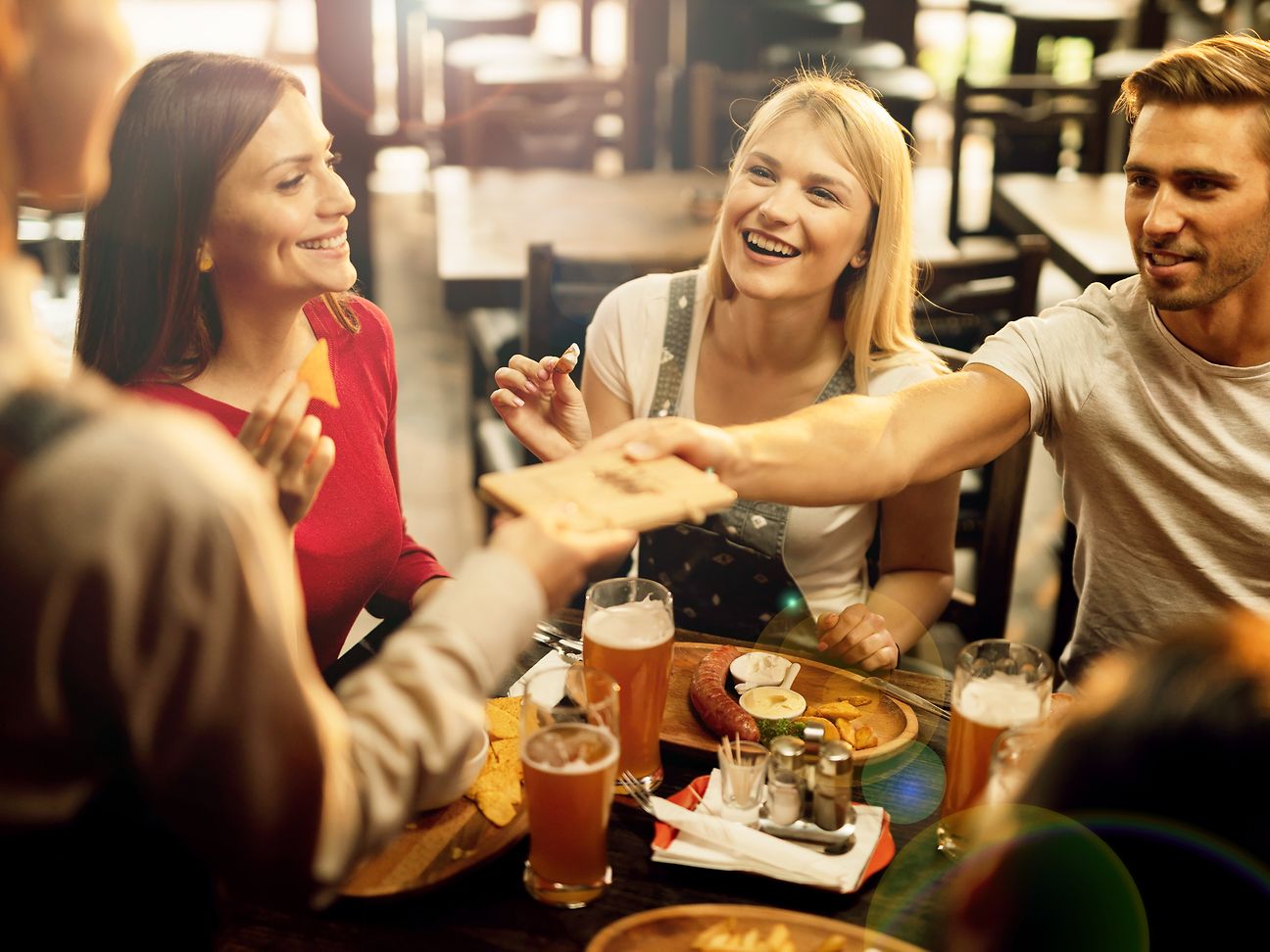

Connected gastronomy for the best service
Read every wish from the lips of the guests! The perfect service - that is the greatest goal of many restaurateurs. Smart technologies support this ambition. The Internet of Things (IoT) in the hospitality industry can do a lot more. It improves planning and increases operational flexibility. Restaurants and hotels work more efficiently and become more resilient to fluctuations in their business.
End the week on a Friday evening with friends in a restaurant: many guests follow this ritual. It smells like delicious food and you can hear the clinking of the glasses. For the staff it is now a matter of full attention. Serving menus, serving drinks and serving food - every move has to be perfect. Good service staff can do it inside out. They kindly fulfill the wishes of the guests, even under the highest stress. And yet the service can still be improved with smart technology. For example, when the waiter or waitress knows before the next order at which tables the next round is due.
Always full glasses thanks to intelligent beer coasters
How it works? The answer to that is the Internet of Things (IoT). One example is the smart beer coasters from Hoffmann + Krippner GmbH. The digital coasters are equipped with Telekom SIM cards. Using the weight, they automatically record the fill level and type of glass. This information goes to the cloud via cellular network, where an IoT platform analyzes the data and prepares it for the management of the inn. During operation, the service staff automatically receives a message as soon as the customer has finished drinking. Then the replenishment is already on the way before the guest has expressed his wish. This saves the waiters the stress of serving the drinks and food and the constant checking of all glasses on the table. For the catering industry, this means: better service, up-to-date sales control, more flexible planning. If the barrel of beer runs out faster than expected, the innkeeper can order more supplies before he gets disappointed faces at the tables. The guests feel more comfortable.
All in all, the catering industry is becoming more resistant to previous imponderables. Test projects have shown that the technology can increase their sales by 10 to 15 percent. Another advantage is that the catering industry can better anticipate and cope with cyclical and structural changes with the smart beer coasters: the digital coasters enable the operator to find out which drinks are particularly in demand at what time. With the help of this information, he can optimize purchasing and avoid bottlenecks and surpluses.
The Future of catering is connected
Other areas of application in the catering industry would be, for example: digital menus, NFC chips for locating cutlery or crockery, smart placemats or IoT sensors in furniture. With the data collected from this, restaurateurs can make purchasing more efficient, anticipate peak times and optimize personnel planning. This enables an all-round successful service for the guests. The prerequisite for this form of resilience is a powerful IoT platform. The Cloud of Things gives restaurateurs secure and clear access to their data. This is possible without a complex installation. The web app makes it possible to call up all relevant information, access analysis tools, view evaluations and configure your own dashboards. This gives catering operators numerous opportunities to gain various insights into their guests and to optimize their business in the long term. At the same time, the restaurant operators gain resilience, which makes them a stronger competitor for their future path.
